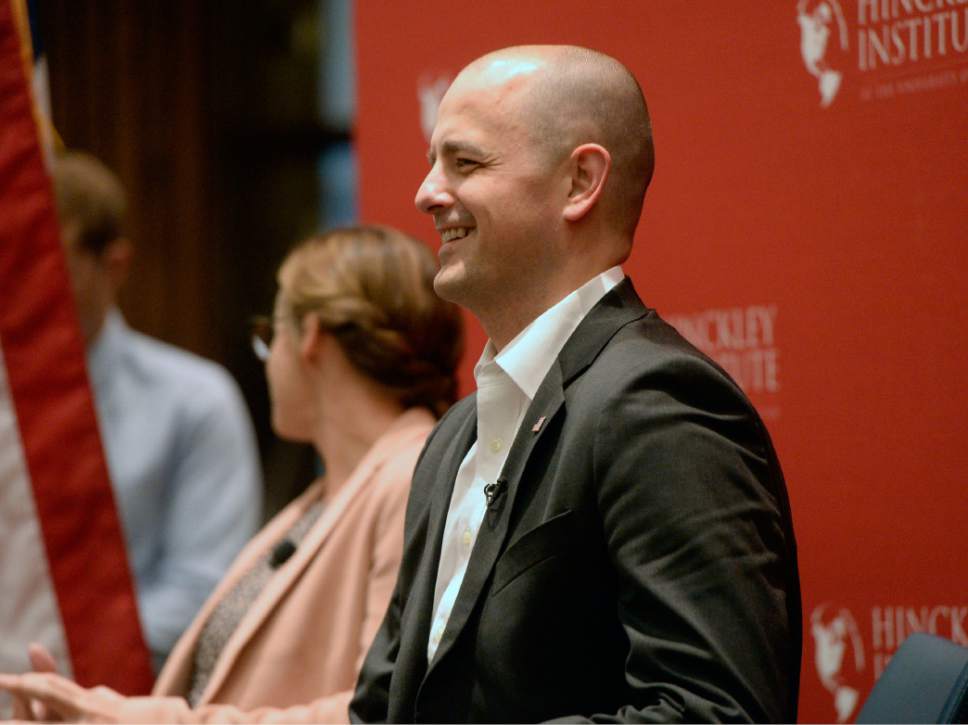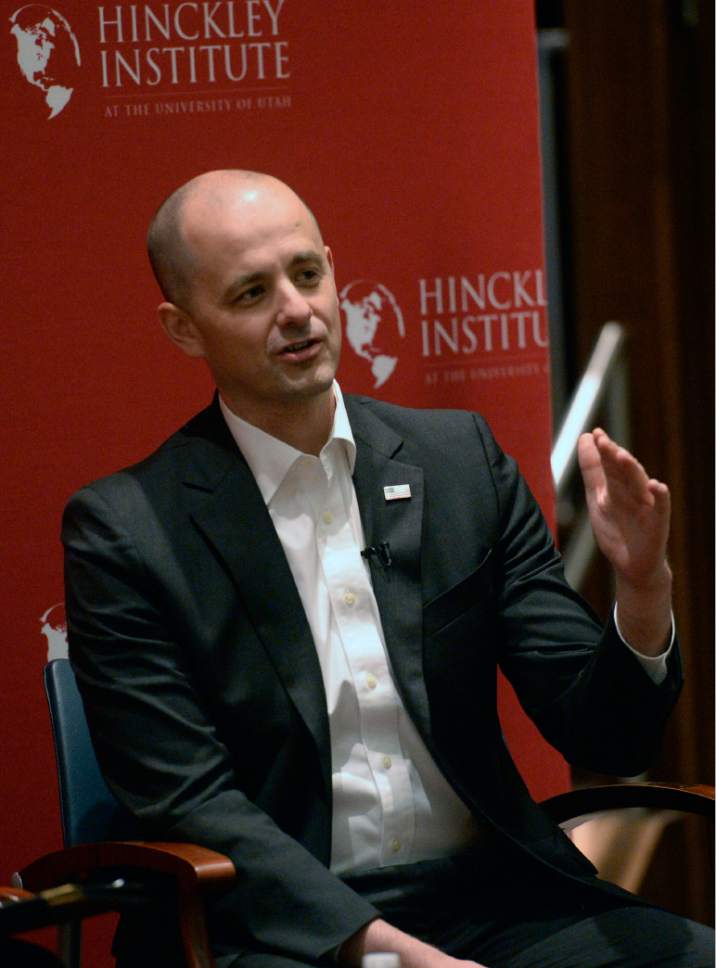This is an archived article that was published on sltrib.com in 2016, and information in the article may be outdated. It is provided only for personal research purposes and may not be reprinted.
Who said pigs can't fly?
A Democratic presidential candidate could carry Utah this year. That hasn't happened since 1964, when Lyndon B. Johnson crushed Barry Goldwater in a landslide.
Since then, the Beehive State has been solidly Republican, thanks in part to the dominant Church of Jesus Christ of Latter-day Saints which, according to a 2014 Pew Research survey, is the nation's most Republican religious group.
The study found that 70 percent of Mormons identify as Republicans, with only 19 percent identifying as Democrats.
Utah has been the GOP presidential hopeful's most supportive state more than once. In 1992, Democrat Bill Clinton finished third behind Republican incumbent George H.W. Bush and independent Ross Perot.
The next election, Clinton came in second but still lost Utah to Republican Bob Dole, 54 percent to 33 percent. Perot, who ran the second time on the Reform Party ticket, received only 10 percent.
Republican George W. Bush carried Utah easily in his two presidential victories — over Al Gore in 2000 and John Kerry in 2004.
President Barack Obama captured 34 percent of the Utah vote in 2008, compared to Republican John McCain's 62 percent. In 2012, Republican Mitt Romney blew past Obama in Utah, 73 percent to 25 percent. Of course, the president was running against a Mormon.
That's another reason why this year's race is so interesting. If Republican presidential nominee Donald Trump falls short in Utah, it may be because of a Mormon.
The recent Utah poll by Y2 Analytics has Trump tied at 26 percent with Democrat Hillary Clinton, the wife of the guy who came in third in 1992. Her numbers are not much better than what most Democrats get in the state, but Trump's are much worse than the usual GOP candidate.
Evan McMullin, the independent who jumped into the race late and has qualified for the ballot in 11 states, is at 22 percent, making it a three-way race. A Provo native and Brigham Young University graduate, this Mormon candidate soared in the Utah polls after Trump's lewd 2005 tape.
Now, McMullin actually could win Utah. He also could throw the race to Clinton.
It wouldn't be the first time Utah Mormons bucked the establishment. When Republican Karl Snow's campaign in the 3rd Congressional District in 1990 ran an ad knocking Bill Orton because he was single, the conservative Mormon community in one of the nation's most Republican districts revolted, and the Democrat prevailed in a huge upset.
LDS Church President Heber J. Grant publicly opposed the candidacy of Franklin Delano Roosevelt in the 1930s and '40s, branding FDR's New Deal socialism. Nevertheless, the New Deal helped many Utahns survive financially and the Democrat easily carried the state in all four of his elections.





